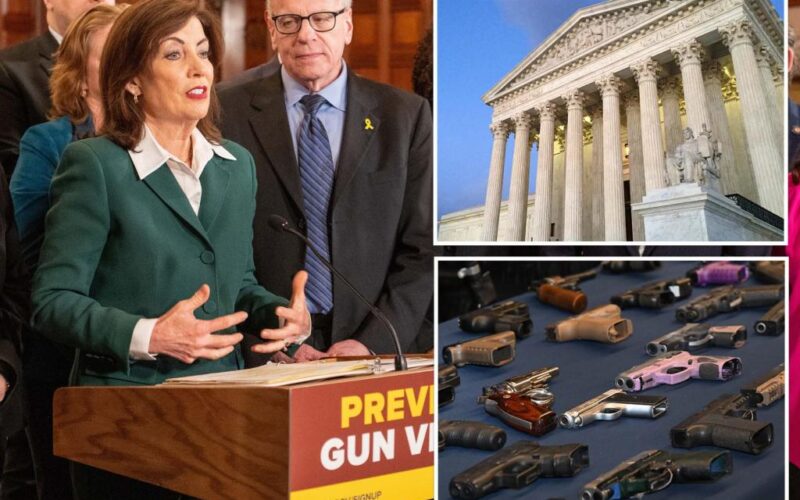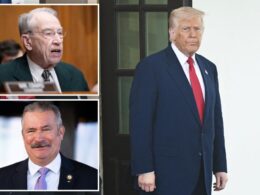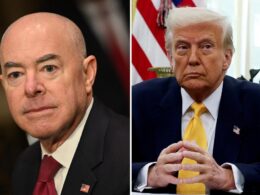The Supreme Court on Monday rejected a bid to overturn New York state’s gun laws, which Albany imposed after the high court nixed century-old restrictions on carrying concealed firearms in 2022.
The justices did not specify why they declined to take up the petition from six residents who were challenging the Concealed Carry Improvement Act.
As a result, an October ruling from the 2nd Circuit Court of Appeals that struck down parts of the law remains in effect.
The appeals court had allowed New York to ban concealed firearms in “sensitive locations,” including parks, entertainment areas, churches, and health care facilities. It also allowed the state to require that prospective gun owners exhibit “good moral character” in order to obtain a concealed carry license.
The 2nd Circuit did nix a provision restricting concealed firearms on private property that might be widely accessed by the public and the law’s demand that applicants share their social media account information.
Under the Concealed Carry Improvement Act, applicants were also required to provide character references and contact information of family members.
The petitioners, led by Schenectady County resident Ivan Antonyuk, had argued the Concealed Carry Improvement Act restricted gun rights in violation of the Second Amendment.
In June 2022, the Supreme Court overturned the 1911 Sullivan Act, which required anyone who wished to obtain a concealed carry permit to show “proper cause.”
In a 6-3 ruling, the justices found that the New York law violated the Second and Fourteenth Amendments “by preventing law-abiding citizens with ordinary self-defense needs from exercising their right to keep and bear arms in public.”
Chief Justice John Roberts and fellow conservative Justice Brett Kavanaugh noted in a concurring opinion that states were still allowed to impose tight licensing requirements; but those needed to be spelled out rather than giving “open-ended discretion to licensing officials.”
The Supreme Court has been selective about which challenges to gun laws it takes up. In June of last year, the justices upheld a law banning individuals with restraining orders against them from legally obtaining firearms.
Last month, the Supreme Court backed Biden-era restrictions on so-called “ghost gun” kits, requiring them to bear serial numbers while would-be purchasers are subject to background checks and age verification.








